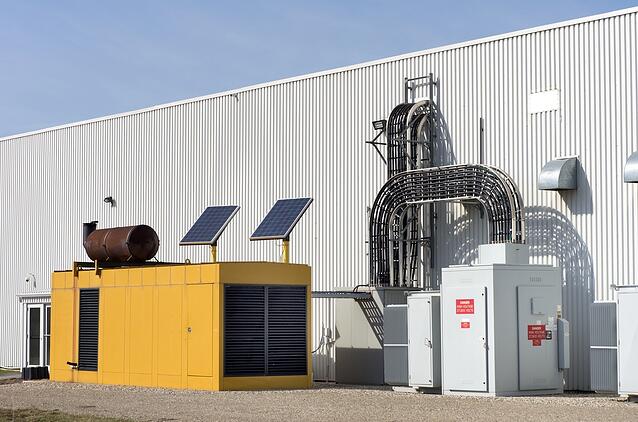How to Choose the Right Commercial Generator
Posted by Kristopher Schwind

If you run a business, you know how critical reliable power is for keeping your operations running, and losing even a few hours of it can mean thousands of dollars in lost revenue. Unfortunately, keeping the power on isn’t always in your control; sometimes Mother Nature has her own agenda.
And while you certainly can’t control Mother Nature, you can be prepared when she strikes with reliable power from a generator. Installed outside of your business, commercial generators are specially designed to turn on automatically, whether your business is open or closed, meaning you never have to worry about the loss of power disrupting your operations. In fact, the only thing you need to concern yourself with is getting the right generator. Let’s walk through the various factors you’ll want to consider when selecting the appropriate commercial generator for your facility.
The Benefits of Standby Generators
For commercial operations, standby generators are the preferred choice, as they will begin running the moment power is interrupted and continue running until power is restored. Having this automatic fail-safe is critical for your commercial operations, eliminating any risk of power failure resulting in lost time, lost revenue, or health-related accidents, such as in a hospital or nursing care facility.
Determine Your Voltage Needs
The next thing you’ll want to consider is your facility’s voltage needs, which will depend largely on the type of facility you will be powering. There are several voltage categories available, but your main consideration will be either a single-phase or three-phase generator.
Single-Phase Generators
Single-phase generators are ideal for small and/or home-based businesses, as they produce a maximum of 240 volts of power. These generators are most typically used for smaller-scale operations, such as powering electronics. They are not conducive to larger-scale operations that require more complex machinery.
Three-Phase Generators
Three-phase generators are most commonly employed in large-scale operations, such as in major manufacturing companies. Keep in mind that these larger facilities generally require an engineering plan and professional supervision during installation to ensure compliance with National Electrical Code (NEC) requirements.
Consider the Fuel Source
You’ll also want to take into account the generator’s fuel source, which is responsible for keeping it running. Natural gas and propane tend to be the top contenders for your commercial power needs, with natural gas in the lead as the most cost-effective.
Propane, on the other hand, is renowned for its long shelf-life and is preferred by many as a clean-burning solution.
Rely on the Experts
Once you have a better sense of the right generator for your facility, put your trust in our expert generator technicians with a free assessment. This assessment will include a power usage analysis, a cost estimate for a new generator, and recommendations of any new cost-saving equipment or systems.
A generator assessment will enable you to make the most informed decision about your facility’s power needs, and while you can’t control Mother Nature, you can definitely take control of your facility.
Kristopher Schwind is the proud owner of National Standby Repair.
 24/7 EMERGENCY GENERATOR SERVICE
24/7 EMERGENCY GENERATOR SERVICE REQUEST A QUOTE
REQUEST A QUOTE
 (914) 734-1400
(914) 734-1400